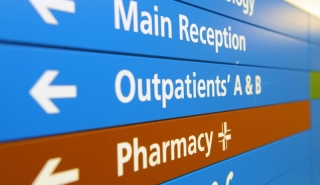In this section
Mid-Year Public Governor Elections 2025
We are now at the voting stage of the Governor Elections. See the Notice of Poll here
If we have your email address then you will receive an email notification to vote. Otherwise, you will receive a postcard at your address.
Why become a Governor?
- It is an opportunity to support your local hospitals, perhaps giving something back if the NHS has had an impact on your life or those close to you.
- You can make a difference to the care and services provided to patients.
- You can use your existing skills, knowledge, and experience to contribute positively.
- You can learn more about the health service and your local hospitals.
How much time is involved?
Governors will tell you they enjoy the role, but the time commitment should not be underestimated.
As well as attending four formal meetings a year, there are other commitments, such as attending Council sub-committee/working group meetings and engagement events. Time will also be required to prepare for and read papers provided for each meeting.
Governors are also encouraged to attend the Board of Directors meeting, held in public each month.
Governors are asked to reach out to the local communities to encourage wide representation of membership; this may involve using your own groups/networks to engage with members of the public.
Attendance at induction and mandatory training and development events will be required to ensure you are kept up to date with NHS current events and to learn more about the Governor role.
Meetings take place on weekdays during the day. Most of these are via Teams, except the formal Council meetings which are held face-to-face.
Who can stand for election?
We aim to elect Governors who are representative of all walks of life; you do not need special skills or qualifications to become an effective Governor. You need to be enthusiastic, committed, and care about your local services. All types of people can become Governors, with the exception of a disqualified person, but you must:
- Be over the age of 16.
- Be a member of York and Scarborough Teaching Hospitals NHS Foundation Trust. See more information on membership here.
- Live in the geographical area you want to represent.
- Have an interest in the health service.
- Be willing to act in the best interests of the Trust and abide by the values of the Trust and Nolan principles of public life.
- Have good interpersonal skills as you will need to talk to others.
- Be willing to travel to Trust sites for meetings/events, etc.
The Election Process
Our election process is run by Civica Election Services (CES), who manage the elections on our behalf. CES will inform the Trust of the results and the candidates will then be contacted by the Governor & Membership Manager (on the Chair’s behalf). Each vacancy is for a period of 2 years 5 months.
For all contested constituencies voting will open on Monday 7 April 2025 and close at 5pm on Tuesday 29 April 2025.
The results of the elections will be available from Wednesday 30 April 2025.
If you are interested in becoming a governor read our booklet Information for Prospective Public Governors, or email yhs-tr.governors@nhs.net.






